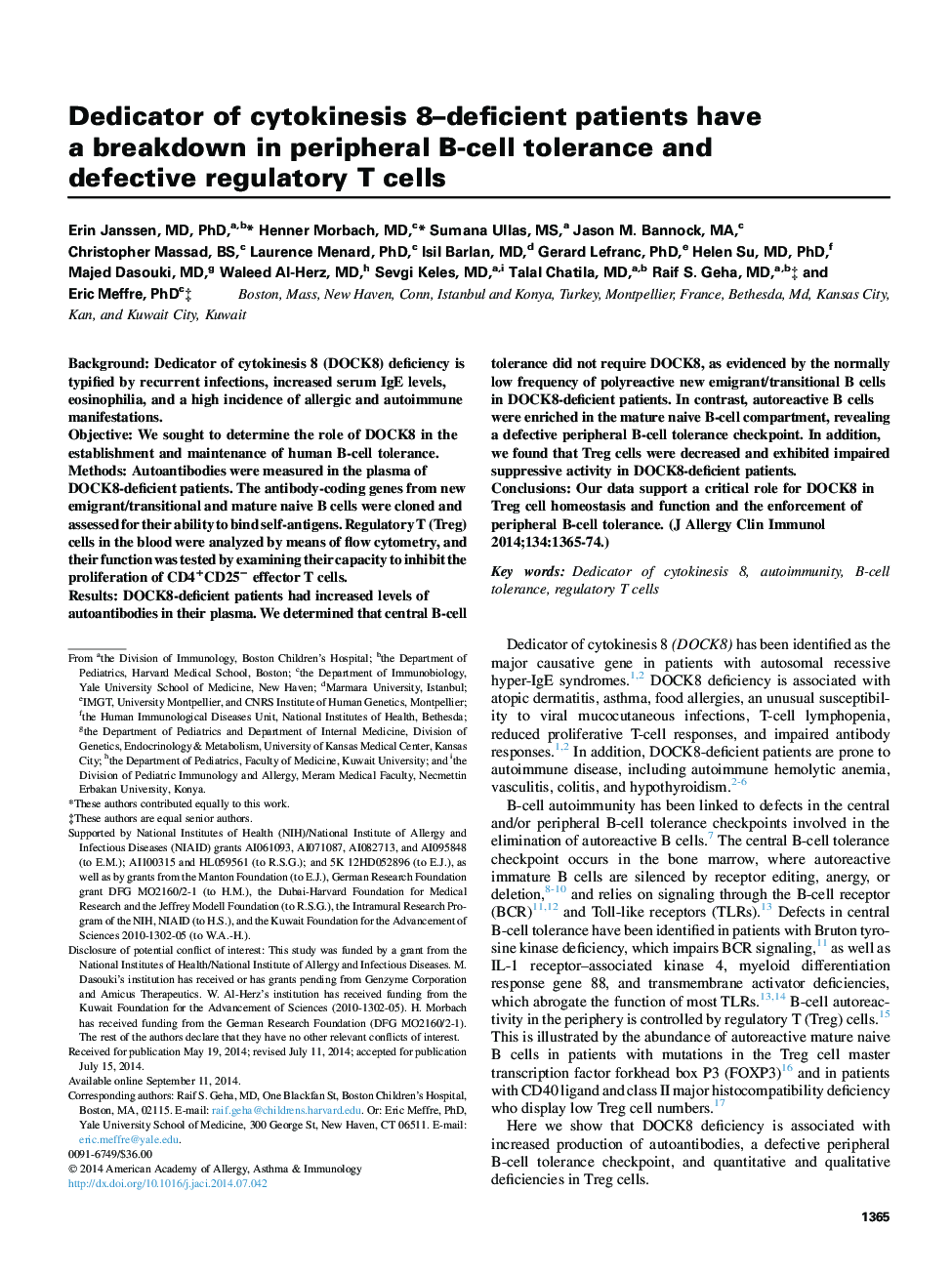| Article ID | Journal | Published Year | Pages | File Type |
|---|---|---|---|---|
| 6065841 | Journal of Allergy and Clinical Immunology | 2014 | 10 Pages |
BackgroundDedicator of cytokinesis 8 (DOCK8) deficiency is typified by recurrent infections, increased serum IgE levels, eosinophilia, and a high incidence of allergic and autoimmune manifestations.ObjectiveWe sought to determine the role of DOCK8 in the establishment and maintenance of human B-cell tolerance.MethodsAutoantibodies were measured in the plasma of DOCK8-deficient patients. The antibody-coding genes from new emigrant/transitional and mature naive B cells were cloned and assessed for their ability to bind self-antigens. Regulatory T (Treg) cells in the blood were analyzed by means of flow cytometry, and their function was tested by examining their capacity to inhibit the proliferation of CD4+CD25â effector T cells.ResultsDOCK8-deficient patients had increased levels of autoantibodies in their plasma. We determined that central B-cell tolerance did not require DOCK8, as evidenced by the normally low frequency of polyreactive new emigrant/transitional B cells in DOCK8-deficient patients. In contrast, autoreactive B cells were enriched in the mature naive B-cell compartment, revealing a defective peripheral B-cell tolerance checkpoint. In addition, we found that Treg cells were decreased and exhibited impaired suppressive activity in DOCK8-deficient patients.ConclusionsOur data support a critical role for DOCK8 in Treg cell homeostasis and function and the enforcement of peripheral B-cell tolerance.
